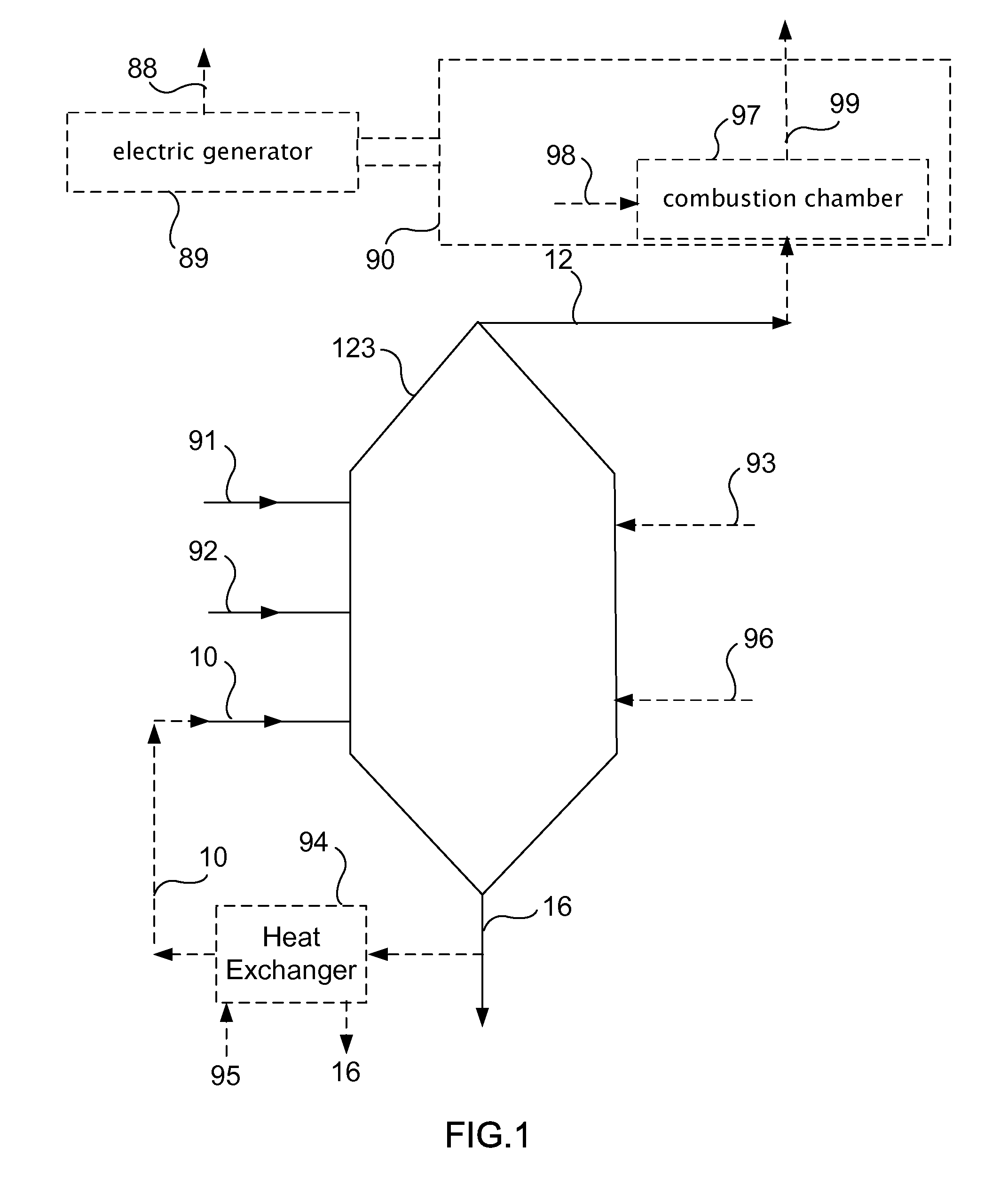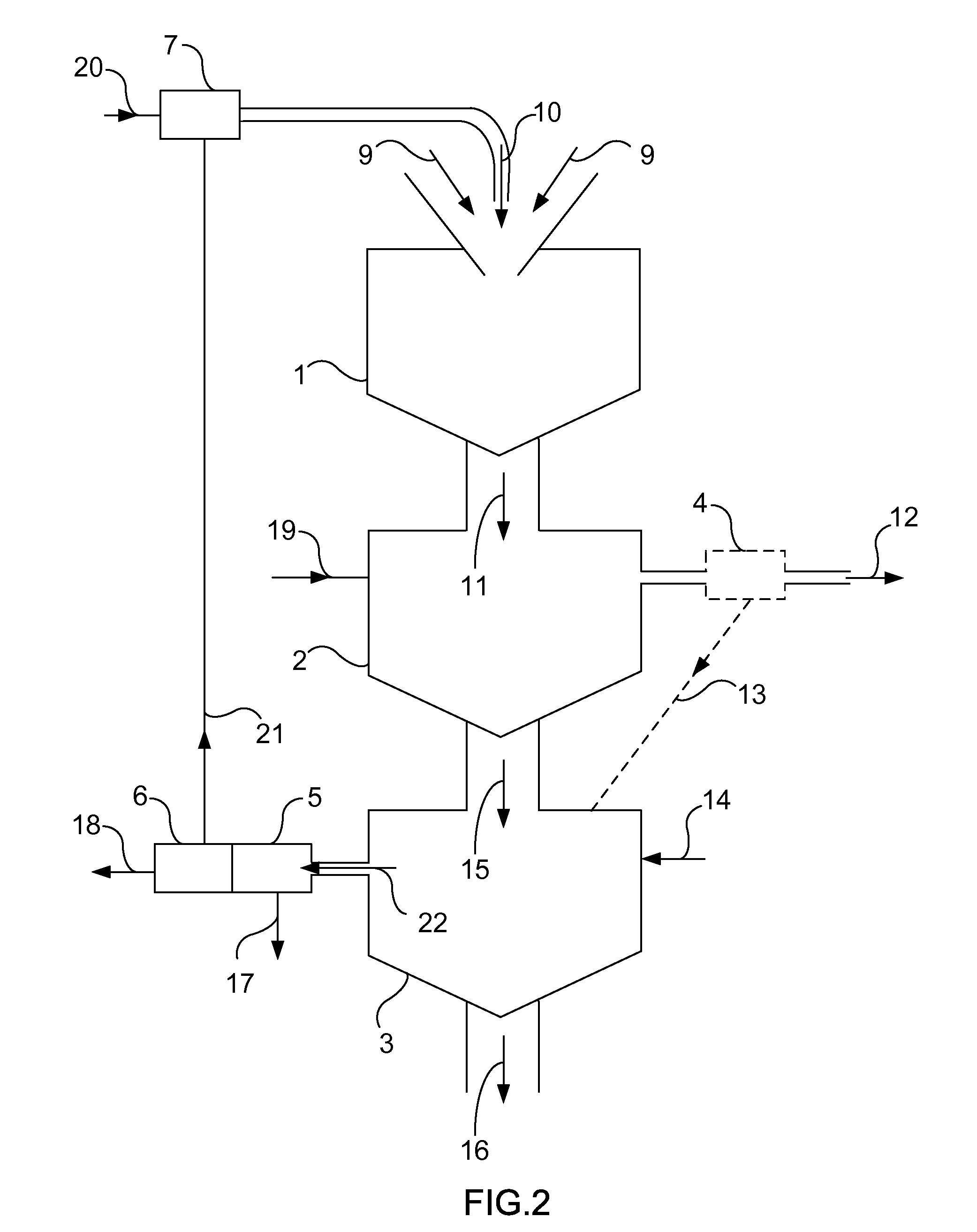Process for converting carbon dioxide from coal utilization to a solid ash
a technology of carbon dioxide and solid ash, which is applied in the field of chemical inorganic compounds, can solve the problems of sharply reducing the feasibility of this cycle, inefficient heat, and difficulty in developing fuel cells, so as to optimize thermodynamic efficiency, minimize capital investment, and enhance energy yield
- Summary
- Abstract
- Description
- Claims
- Application Information
AI Technical Summary
Benefits of technology
Problems solved by technology
Method used
Image
Examples
Embodiment Construction
[0020]In the following description, reference is made to the accompanying drawings, which form a part hereof and which illustrate several embodiments of the present invention. The drawings and the preferred embodiments of the invention are presented with the understanding that the present invention is susceptible of embodiments in many different forms and, therefore, other embodiments may be utilized and structural, and operational changes may be made, without departing from the scope of the present invention. For example, the steps in the method of the invention may be performed in any order to produce the products.
[0021]A preferred embodiment of the process is shown in FIG. 1, which illustrates the principles of the process. For brevity, in the chemical reactions quoted below, coal is equivalent to carbon. Dashed lines in the figures indicate optional steps or components.
[0022]A reaction vessel (123) is fed powdered coal (91), powdered alumina clay (92); and pressurized steam (10)...
PUM
| Property | Measurement | Unit |
|---|---|---|
| pressure | aaaaa | aaaaa |
| temperature | aaaaa | aaaaa |
| aqueous | aaaaa | aaaaa |
Abstract
Description
Claims
Application Information
 Login to View More
Login to View More - R&D
- Intellectual Property
- Life Sciences
- Materials
- Tech Scout
- Unparalleled Data Quality
- Higher Quality Content
- 60% Fewer Hallucinations
Browse by: Latest US Patents, China's latest patents, Technical Efficacy Thesaurus, Application Domain, Technology Topic, Popular Technical Reports.
© 2025 PatSnap. All rights reserved.Legal|Privacy policy|Modern Slavery Act Transparency Statement|Sitemap|About US| Contact US: help@patsnap.com



